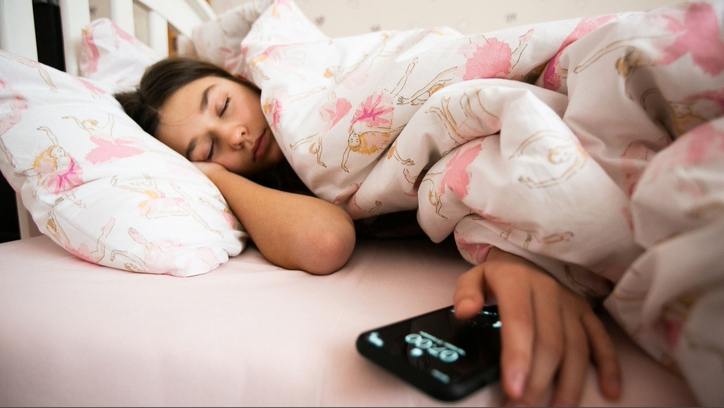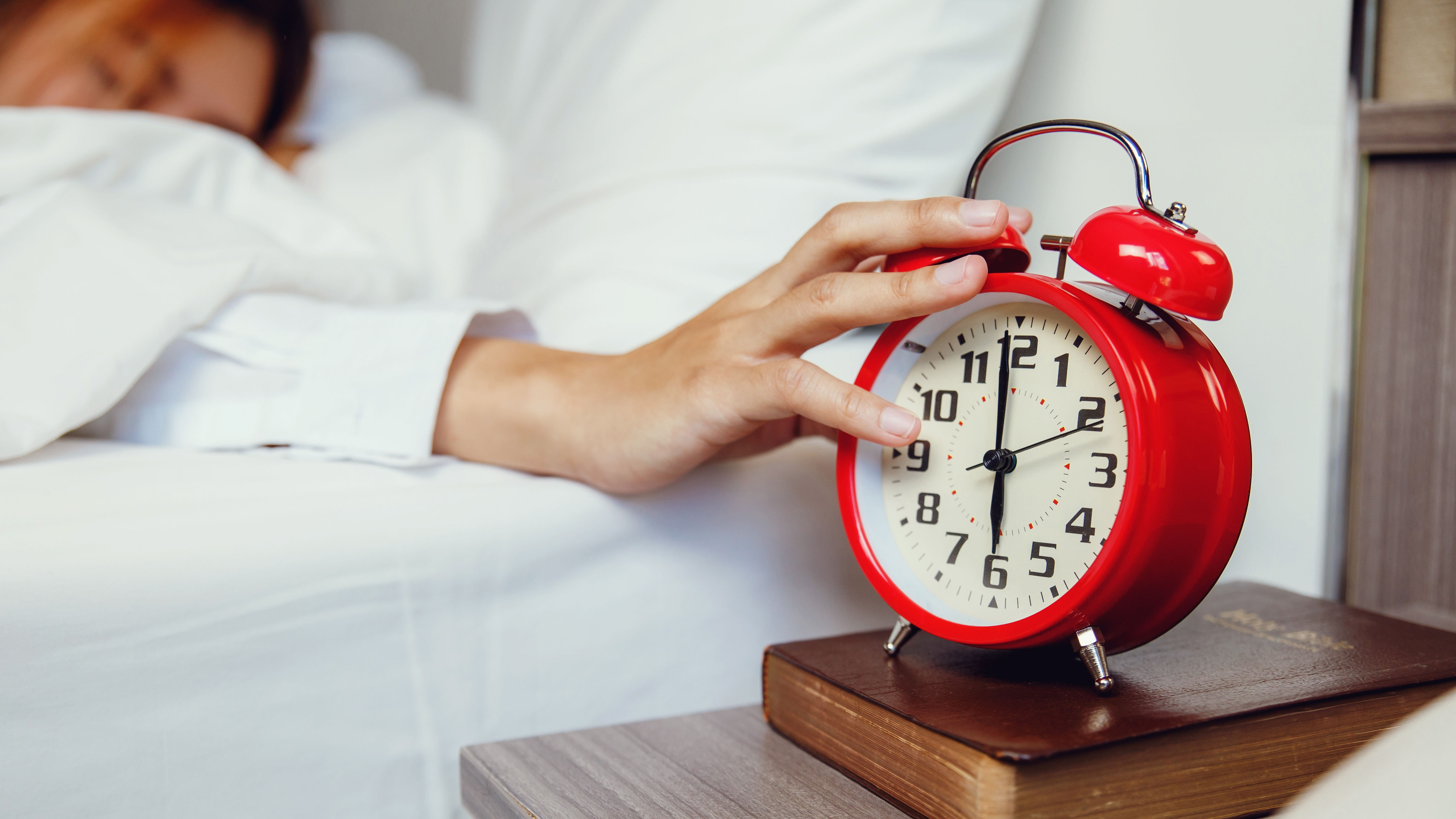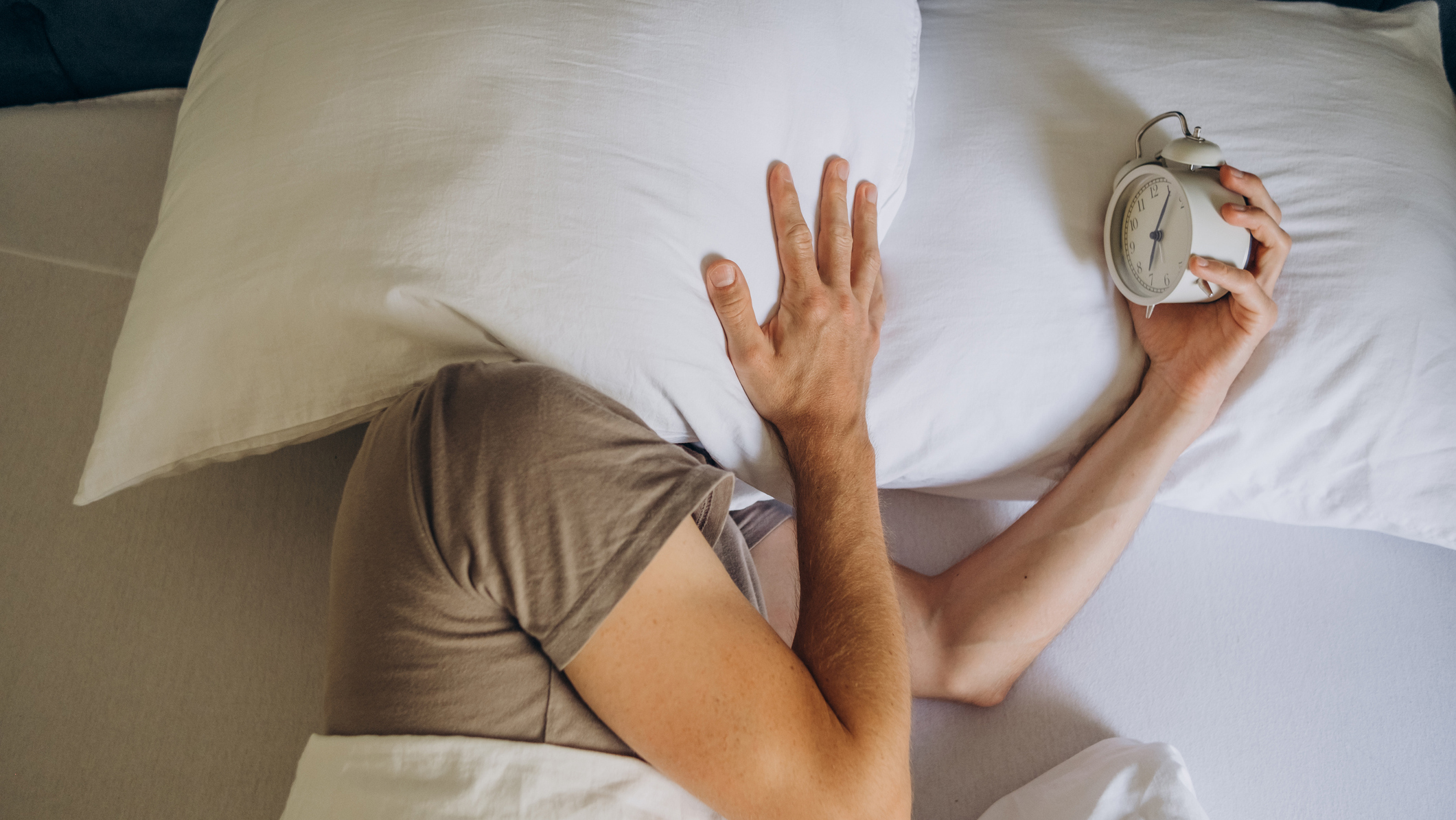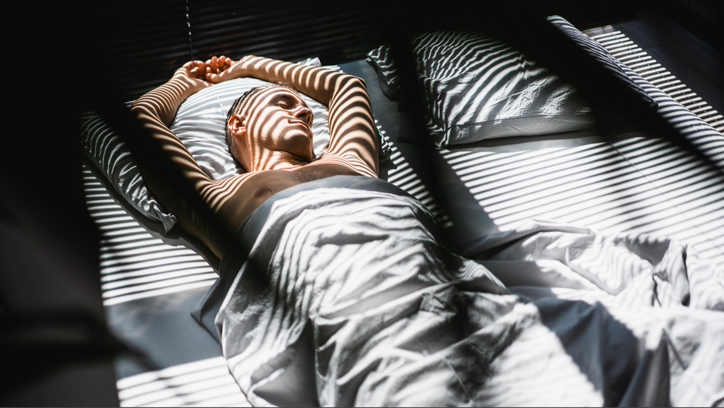More than 55% of people hit the snooze button daily — here's how it impacts your brain and body
A new study has shed light on how often people hit snooze, how long for and whether men or women snooze more

Indulging in a little extra sleep in the morning courtesy of the snooze button is something many of us will be familiar with. But now, a new study has shed light on just how many people have this habit.
Looking at more than 3 million nights of sleep data from 21,000 people, the researchers found that more than 55% of sleep sessions ended with people pushing their snooze alarm for a few more minutes of shut-eye.
If that doesn't apply to you and you're someone who jumps out of bed at the first sound of your morning alarm, I take my hat off to you. Because even as a well-rested sleep writer with a full-time job in learning how to optimize my sleep, I still find myself hitting snooze at least once in the morning.
Maybe its because I sleep on an oh-so comfortable top-rated mattress so I can't resist an extra few minutes snuggled up in bed. But whatever the reason, hitting snooze is a habit I want to kick this summer.
So, as well as exploring this latest research, I spoke to Dr. Leah Kaylor, a licensed clinical psychologist specializing in sleep and trauma, about the risks of consistently hitting snooze, and what you should do to make that button less tempting.
Key takeaways from the study
- Researchers analyzed 3 million nights of sleep data from more than 21,000 people
- Over 55% of sleep sessions ended in the snooze button being pressed
- Average snooze duration was 10 minutes 48 seconds
Pressing snooze in the morning happens in over 55% of sleep sessions, according to a new study by scientists at Mass General Brigham.
Using data from the sleep analysis app Sleep Cycle, researchers analyzed the sleep habits of more than 21,000 people around the world over a six month period.
Get instant access to breaking news, the hottest reviews, great deals and helpful tips.
They looked at more than three million night's of data and found 55.6% of sleep sessions logged ended with a snooze alarm.

The researchers also found that the average snooze time was 10 minutes and 48 seconds, and that "of the sleep sessions ending with snooze alarm, snooze alarm was pressed on average 2.4 times."
Those who slept nine hours or more were more likely to hit snooze (compared to those who slept for 7-9 hours or less than 7 hours), while people who went to bed earlier weren't as tempted to snooze as late sleepers.
45% of participants hit the snooze button for 80% of their sleep sessions
The study revealed that the majority, 45%, of participants hit the snooze button for 80% of their sleep sessions, classifying them as 'heavy snooze alarm users'.
Snoozing activity varied between days of the week. Overall, more people hit snooze on typical working days (Monday through Friday), while the snooze button got more of a rest on weekends.
The researchers also found women are more likely to snooze than men, which could indicate further evidence of the gender sleep gap. The data showed women spent an average 11 minutes 30 seconds snoozing, while men spent an average 10 minutes 12 seconds.
What's the problem with hitting snooze?
A recent study showed that around one third of people don't reach the recommended sleep target of 7-9 hours a night. So it's not surprising that many of us appear to be trying to cram in an extra few minutes when our alarms sound in the morning.
But snoozing isn't the best way to handle a lack of sleep or sleep deprivation, as it causes more disruption in our natural sleep-wake cycle. According to the new study, experts say the sleep we get after hitting the snooze button is likely to be of poor quality.
"While it feels comforting in the moment, hitting snooze disrupts your natural waking process and can lead to sleep inertia — that groggy, heavy-headed feeling that lingers after getting out of bed," explains Dr. Kaylor.
This is because you're not getting "meaningful rest" during those extra 5 to 10 minutes, just "fragmented sleep that confuses your brain," she says.

So, what happens to your brain and body when you press snooze? While you might think an extra few minutes kip is a good thing, the reality is likely to be the opposite.
"Each time you snooze, your brain reinitiates part of the sleep cycle — often entering light or REM sleep, depending on timing," says Dr. Kaylor.
"But because you're not asleep long enough to complete a full cycle, your brain is abruptly interrupted."
The result? You may experience sleep inertia, reduced cognitive sharpness, moodiness, and even elevated blood pressure as your body keeps restarting the 'wake-up' process.
3 expert tips for avoiding the snooze button
Rather than hitting snooze, these expert recommended tips can help you get out of bed with energy to take on the day...
1. Place your alarm across the room
Placing your alarm, be it your phone or a traditional alarm clock, across the room from where your bed is puts physical space between you and the snooze button, making it impossible to turn it off and roll over back to sleep.
You'll have to get up to turn it off, and once you're out of bed it's much easier to feel alert and get on with your morning routine.
The authors of the new study also noted that sleep experts suggest "setting an alarm for the last realistic wake time to allow for as much consolidated, uninterrupted sleep as possible."
2. Wake up to light
One of my key sleep tips will always be sleep with your blinds open. As your bedroom slowly fills with light, you gradually wake up.
This allows you to reach the end of a sleep cycle, completing all essential sleep stages, without being jolted awake by a loud alarm. This way, you're more likely to wake up with energy as your sleep will have been more restorative.

If your schedule requires you to wake up before the sun, consider investing in one of this year's best sunrise alarm clocks, which simulate a sunrise inside your bedroom, creating a more gentle wake-up call.
3. Stick to a consistent sleep schedule
Another way to help you wake up on time without hitting snooze is sticking to a consistent sleep schedule. This is where you wake up and go to sleep at roughly the same time each day.
Doing so helps to align your natural circadian rhythm so your body gets used to releasing sleep and wake hormones at certain times of day. A healthy circadian rhythm should see melatonin production drop off towards the morning, so you feel less sleepy.

Eve is a sleep tech product tester and writer at Tom's Guide, covering everything from smart beds and sleep trackers, to sleep earbuds and sunrise alarm clocks. Eve is a PPA-accredited journalist with an MA in Magazine Journalism, and has four years’ experience writing features and news. In her role as Sleep Tech Product Tester and Writer for Tom's Guide, Eve is constantly trying out and reviewing the latest sleep products from brands such as Apple, Garmin, Whoop, Hatch, Sleep Number, Eight Sleep, and Oura. A fitness enthusiast who completed the London Marathon earlier this year, Eve loves exploring the relationship between good sleep, overall health, and physical performance, and how great sleep tech can make that relationship even better.
You must confirm your public display name before commenting
Please logout and then login again, you will then be prompted to enter your display name.
 Club Benefits
Club Benefits





